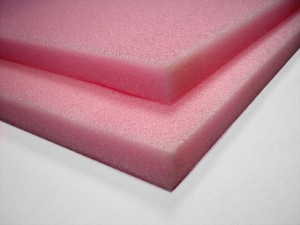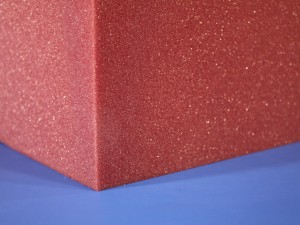Uses for Foam in the Armed Forces – Part I
For our post on the uses for foam in the military and armed forces, we have broken the entry into two separate posts due to the number of applications it encompasses.
—
The applications for foam are often thought to be simple, everyday uses, but some of foam’s most important jobs, as well as some of its most overlooked, are its uses in the military and armed forces. The resources needed to defend our country and participate in global initiatives are staggering, in part because the branches of the military may as well be entire communities unto themselves. Because of this, The Foam Factory is proud to offer and manufacture foam materials that can be used by any branch of the military.
One of the most basic uses for foam is also one of the military’s most vital. Secure packaging ensures that goods and products are delivered safely, whether they’re needed for benign activities or the most critical operations. Precision testing instruments, computers, supplies and weaponry are all constantly being sent across the globe, and arriving in anything less than perfect condition is simply not an option. Given the distance goods and materials may have to travel and because in some cases, lives may depend on what is arriving, military packaging needs to be as secure as possible. One part of ensuring the security of these shipments is polyethylene case foam.
Polyethylene is a shock absorbing, vibration-dampening, closed-cell foam material, perfect for the custom packaging of precision military goods. Additionally, polyethylene is also shatter-proof, lightweight and flexible, due to its chemically cross-linked molecular structure, rendering it an excellent army foam material. Adding to the list of beneficial traits, it is also antimicrobial, inhibiting the growth of mold, mildew and bacteria. The Foam Factory offers this material in many different product densities, from 1.7 pounds up to 9 pounds for customizing packaging to the product. For specialty packaging, polyethylene also comes in an anti-static formulation for dissipating potentially damaging electro-static charges and a fire retardant variety can be specially ordered as well. For safely transporting firearms, delicate mechanical components, computers or vehicle parts, polyethylene case foam inserts are a smart military foam packaging solution.
Another application for polyethylene foam, in addition to closed-cell neoprene, is in the testing of safety equipment for service members. The National Institute of Justice’s testing regulations state that foam backing is to be used behind body armor to evaluate its ability to withstand stabbing strikes from blades or knives. The Army uses neoprene and polyethylene materials in the testing of body armor vests for their military police forces. Four thin layers of neoprene are placed directly behind the armor, followed by a single, thicker sheet of polyethylene placed over a rubber base. The Foam Factory stocks both neoprene and polyethylene materials, along with the ability to trim them to any sheet size required, down to 1/8 of an inch for neoprene foam and as thick as 2 solid inches for polyethylene. Sheets are also able to be laminated together for greater thicknesses, with solid sections greater than 2 inches in thickness available by special request.
Foam is also utilized in the rehabilitation of military members. The Department of Veterans Affairs uses foam materials for therapy equipment in the form of safe floor padding and could also use body wedges or foam bolsters for other physical therapy uses. Gym rubber, often used as floor padding, is offered in full sheets measuring 96 by 48 inches, half sheets at 96 by 24 inches or 48 by 48 inch square sheets. Available in three different colors, The Foam Factory’s black gym rubber can be cut down to 1/8 of an inch up to 2 inches, their beige foam from 1-1/4 to 2 inches and the gray at 1 inch. These foam rubber materials can be cut into tiles with interlocking edge designs so temporary mats can be set up in areas used for multiple activities. This interlocking design also allows mats to be expanded or reduced based on need.
In addition to the shock absorbing support offered by a gymnastic rubber floor mat, The Foam Factory also manufactures body wedges for exercising and physical therapy. Made of antimicrobial medical foam, these wedges come in 2 inch height increments from 6 inches up to 16 inches tall. Polyethylene foam cylinders are also helpful rehabilitation materials because of the firmness, moisture resistance and antimicrobial qualities they offer. Cylinders can be used as supportive physical therapy supplies for a boost in posture during exercise or stretches, and also in balance exercises. These resilient forms are available in diameters of 1-1/2 to 6 inches and lengths of 17, 35 and 70 inches, which are easily trimmed to size if you need a length between what is offered.
Next Post: Uses for Foam in the Armed Forces – Part II
Tags: Camping Pad, Case Foam, Foam Inserts, Military, Sound Deadening Foam
Posted in Announcements, Industrial, Other Products




Leave a Reply